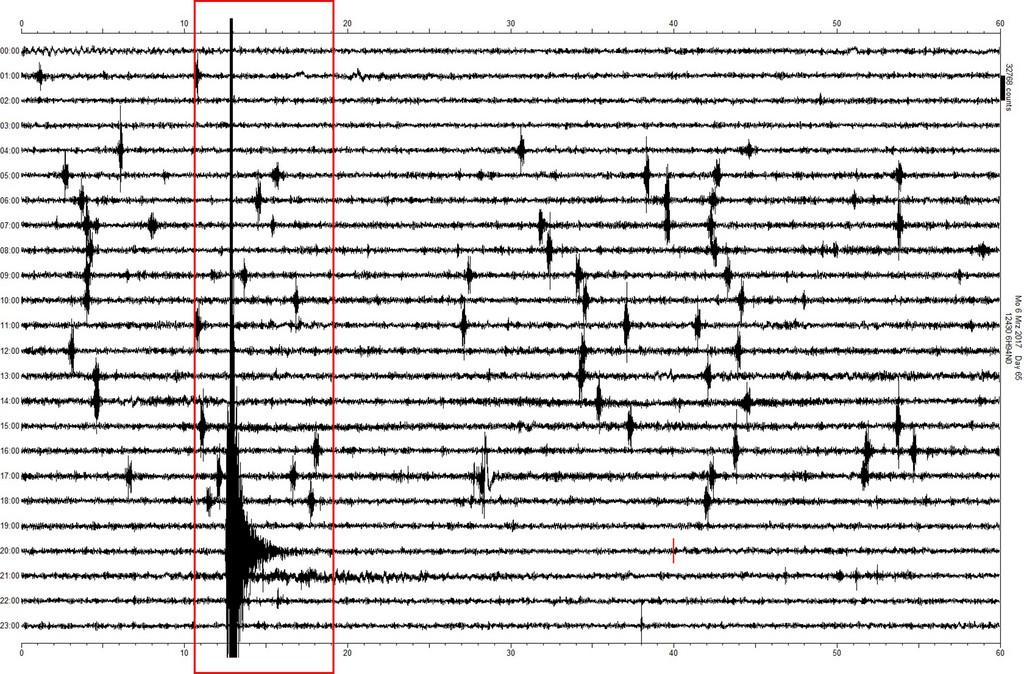
Record number of Swiss earthquakes in 2017

Last year was a record one for earthquakes in Switzerland and its neighbours – with about 1,230 earthquakes detected, including the most powerful one in over a decade.
According to the Swiss Seismological ServiceExternal link, the year 2017 was a busy one in Swiss earthquake history. On March 6, Switzerland was shaken by an earthquake with a magnitude of 4.6. Its epicentre was near Urnerboden in central Switzerland, and people felt it in many parts of the country. In addition to startling people, it caused minor damage and set off 100 aftershocks.
+ How did Switzerland react to its biggest earthquake in over a decade?
On July 1, an earthquake with a magnitude of 4.3 occurred near Château-d’Oex in western Switzerland, triggering about 240 aftershocks.
“In 2017, 23 earthquakes occurred with magnitudes of 2.5 or higher, in line with the average for the past 42 years. The earthquake activity was concentrated mainly in the Valais, Graubünden and the area along the Alpine front,” reports the Swiss Seismological Service. More than 700 were microearthquakes, with magnitudes under 1.0.
Located at federal technology institute ETH Zurich, the Swiss Seismological Service is the federal agency for earthquakes. Its activities are integrated in the federal action plan for earthquake precaution.

More
Preparing for a seismic disaster

In compliance with the JTI standards
More: SWI swissinfo.ch certified by the Journalism Trust Initiative

























You can find an overview of ongoing debates with our journalists here . Please join us!
If you want to start a conversation about a topic raised in this article or want to report factual errors, email us at english@swissinfo.ch.